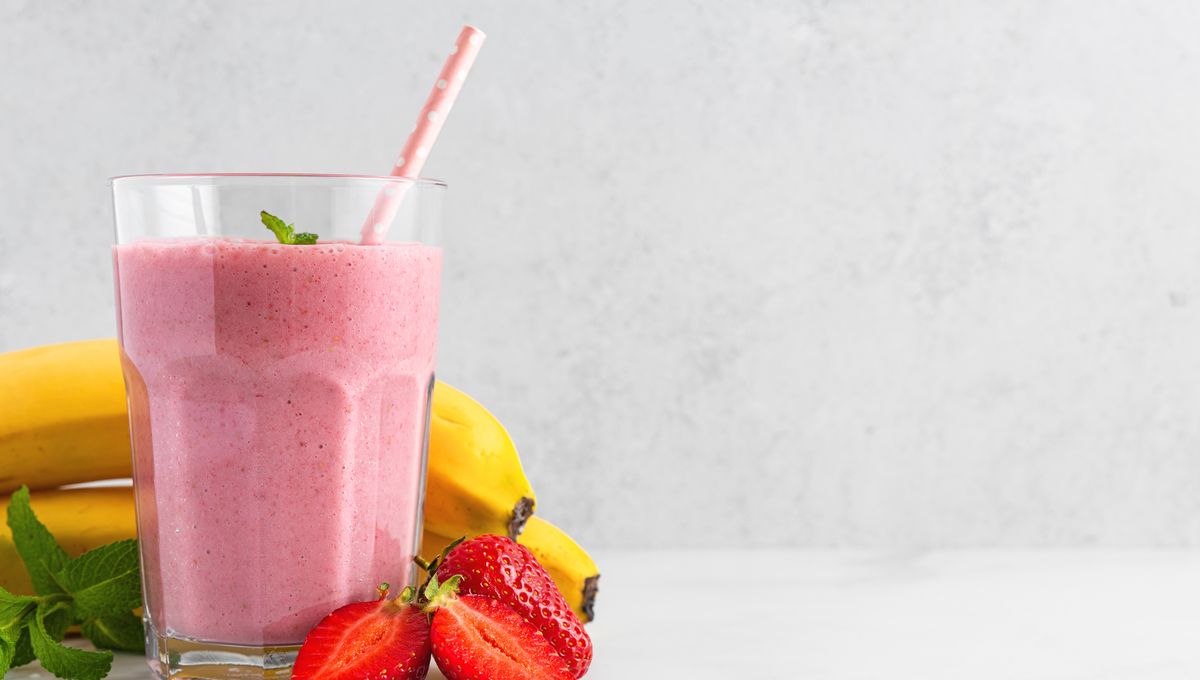
For optimum health benefits, the general advice is to aim for five servings of fruit and vegetables per day. That’s the advice from governments and scientists alike – but let’s face it: sometimes, it’s hard to get ‘em all in.
For some, smoothies are the solution. They’re a great way to slam down some nutrients in the morning: just collect up a whole bunch of produce, blend them all together, and drink it up. What could be healthier?
Well, we hate to be the bearers of bad news, but much like vitamin supplements, this may be one “healthy” habit that’s not as beneficial as you think. A study from 2023 found that, depending on exactly which ingredients you choose, some of the nutrients present in the fruit that goes into the beverage might end up going to waste once you drink it. And why? Because of the bananas.
“We were really surprised to see how quickly adding a single banana decreased the level of flavanols in the smoothie and the levels of flavanol absorbed in the body,” Javier Ottaviani, director of the Core Laboratory of Mars Edge – part of Mars, Inc, who funded the study – and adjunct researcher at UC Davis, said in a statement at the time.
“This highlights how food preparation and combinations can affect the absorption of dietary compounds in foods,” added Ottaviani, who was also lead author of the research.
So, what kind of damage are we talking here? Flavanols – you may also see them called flavan-3-ols or catechins – are chemical compounds present in foods like apples, pears, blueberries, blackberries, grapes, and cocoa (not chocolate), and they’re great for your heart and brain.
“People who eat a diet high in flavanol-rich foods may have better memory compared to those who have a low intake,” noted Gunter Kuhnle, a Professor of Nutrition and Food Science at the University of Reading who was also on the study team, in a 2023 article. “A previous study also found that people with a low intake of flavanols were at higher risk of heart disease. Overall, there’s convincing evidence that consuming enough flavanols has health benefits.”
Unfortunately, many fruits and vegetables also contain the flavanols’ natural enemy: polyphenol oxidase, or PPO. You already know this compound, even if not by name – it’s the chemical that causes sliced apples or bananas to go brown when they touch the air.
And, apparently, it also dramatically affects our bodies’ ability to absorb flavanols. The researchers gave two groups of participants different flavanol-containing smoothies – one made with banana, which has a lot of PPO activity, and one made with mixed berries, which don’t. A third group, for control, took a simple flavanol capsule.
The results? The participants who drank the banana-based smoothie ended up with 84 percent lower flavanol levels in their plasma than those who took the capsule. The berry-based smoothie, in contrast, gave very similar results to the capsule – implying that the PPO-heavy banana had counteracted some important benefits of drinking the smoothie in the first place.
Of course, this isn’t to say that bananas are bad – they’re still a great option for providing nutrients like potassium, fiber, vitamins, and antioxidants (plus, of course, some minor radioactivity). And it’s important to note that this study was pretty tiny, involving only eight participants, all of whom were “healthy men”, according to the report.
Nevertheless, it’s a little nugget of info that might give your smoothies more of a nutritious punch. If you truly love a banana smoothie, Ottaviani suggested avoiding pairing the yellow berry with flavanol-heavy foods like berries, grapes, or cocoa. Alternatively, if you’re looking for a low-PPO switch out for the ‘nana, maybe try pineapple, oranges, mango, or yogurt, he advised.
“This is certainly an area that deserves more attention in the field of polyphenols and bioactive compounds in general,” Ottaviani said.
Source Link: Your Banana Smoothie Might Be Kind Of Self-Defeating, Health-Wise